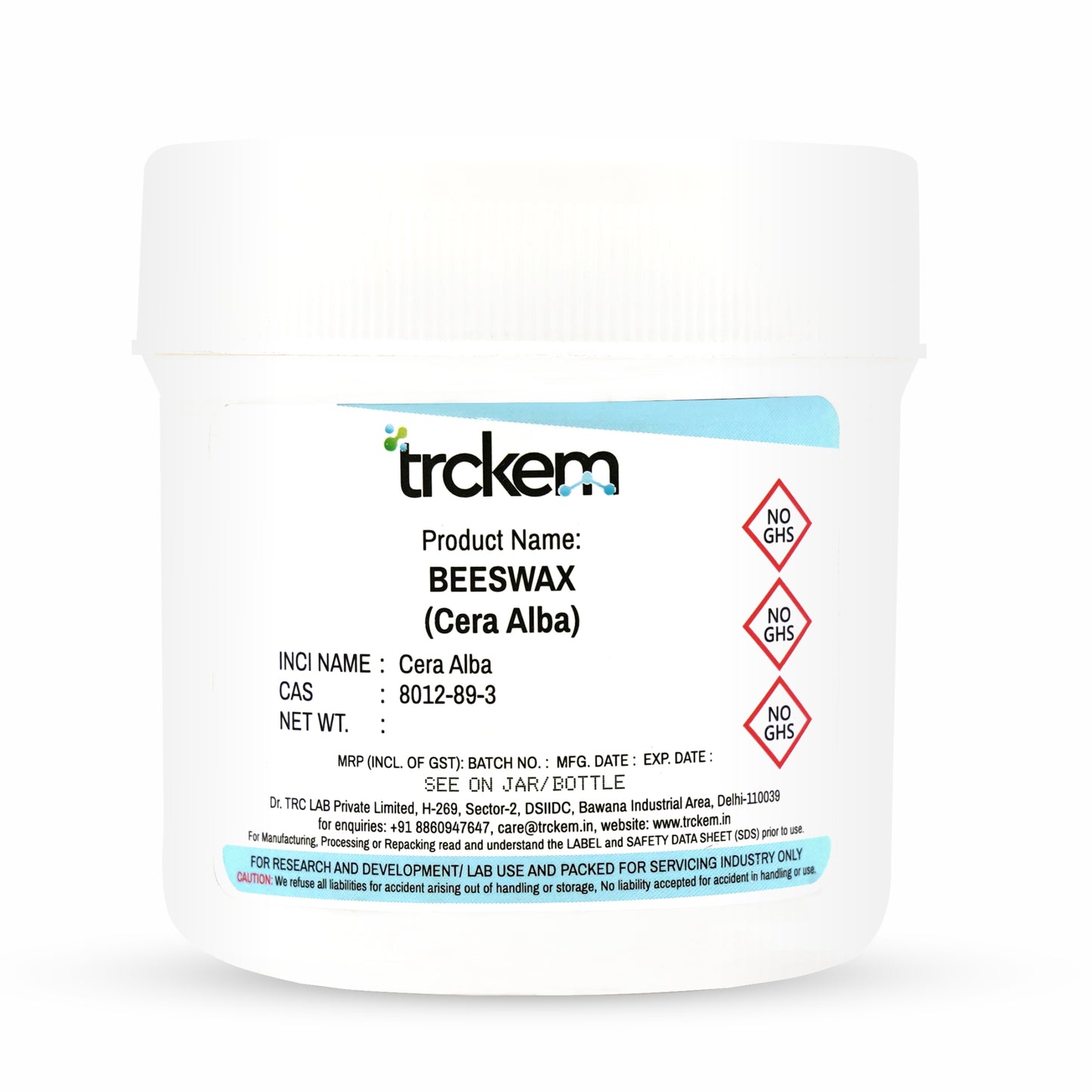
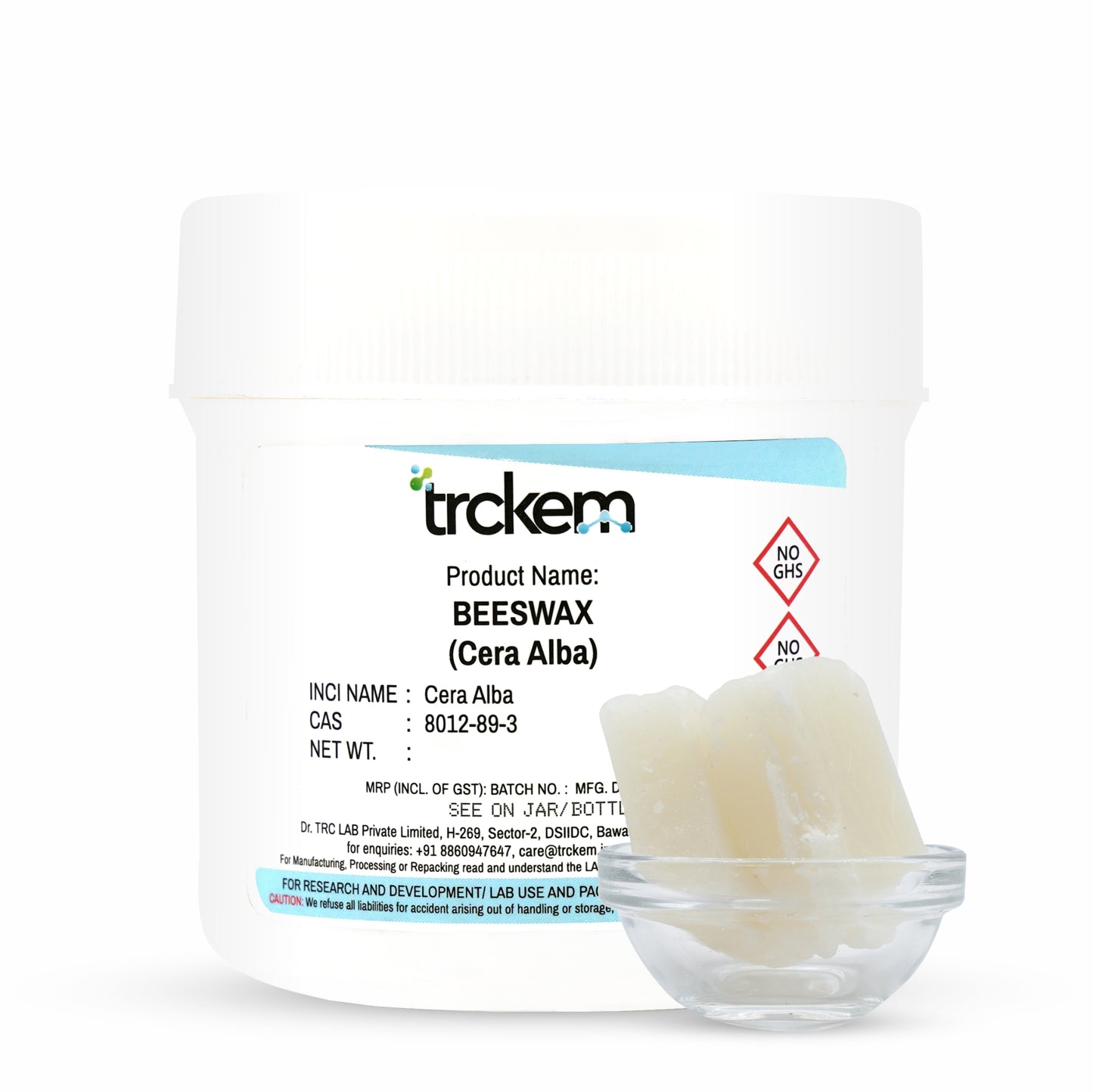
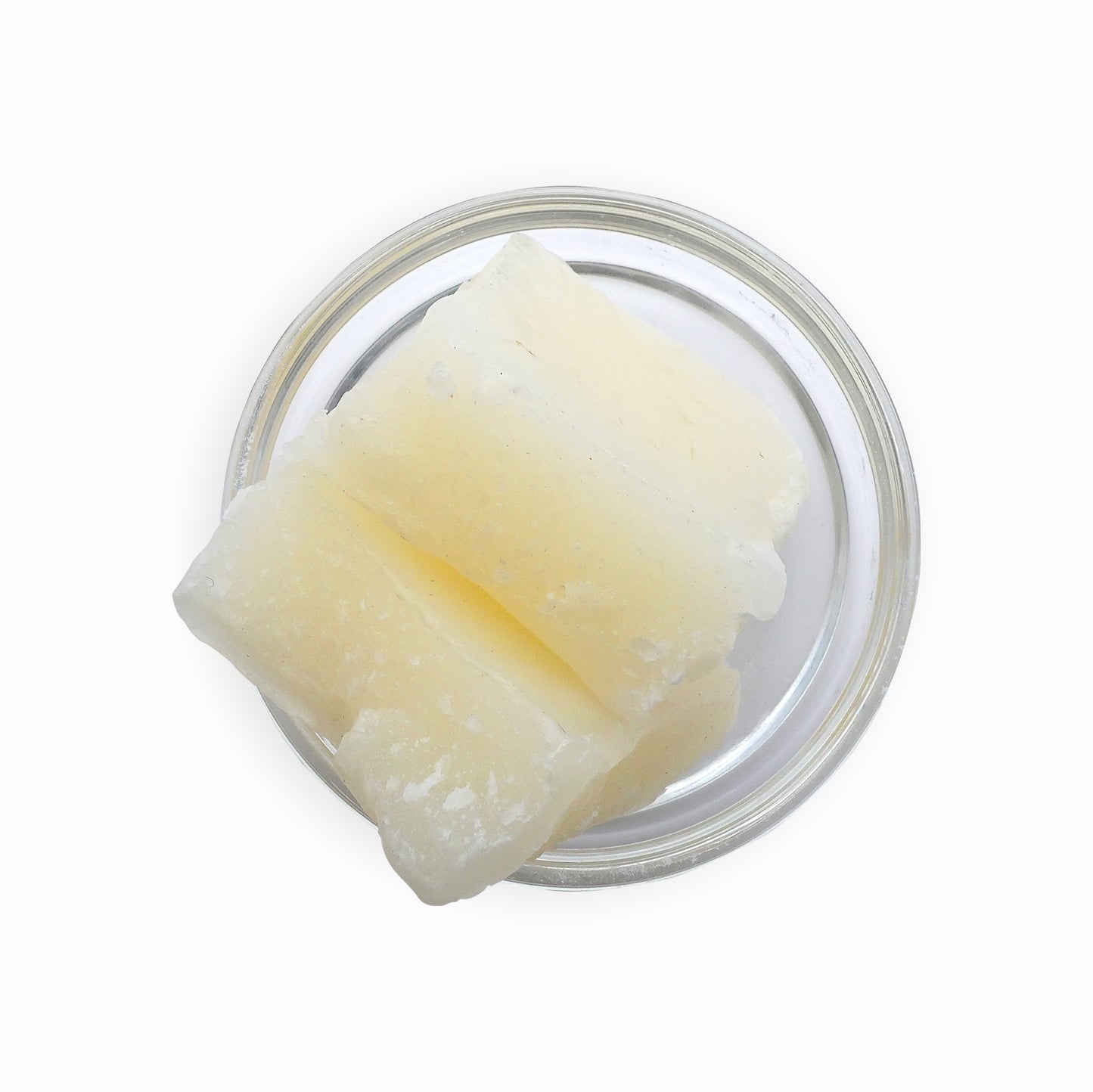
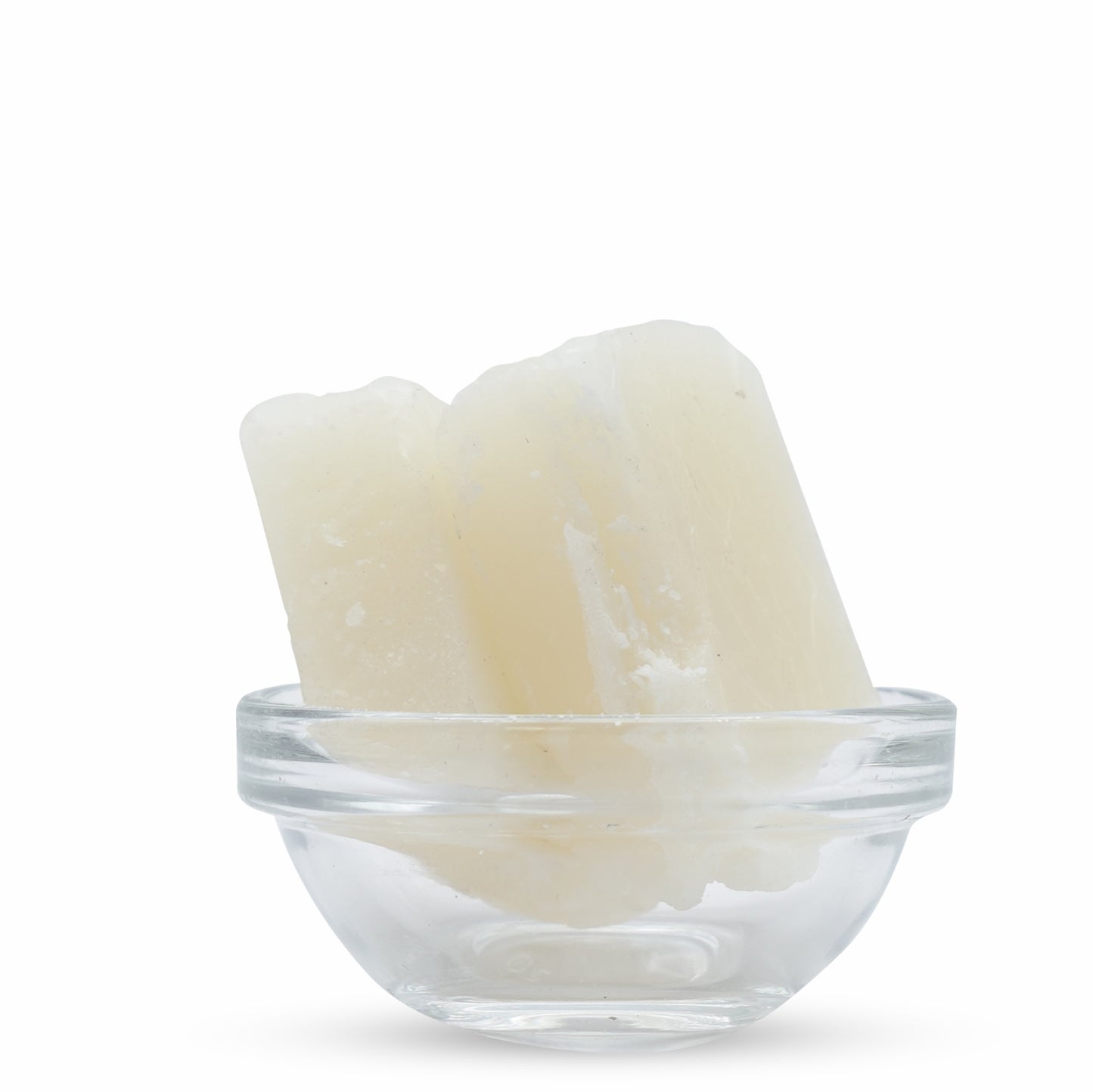
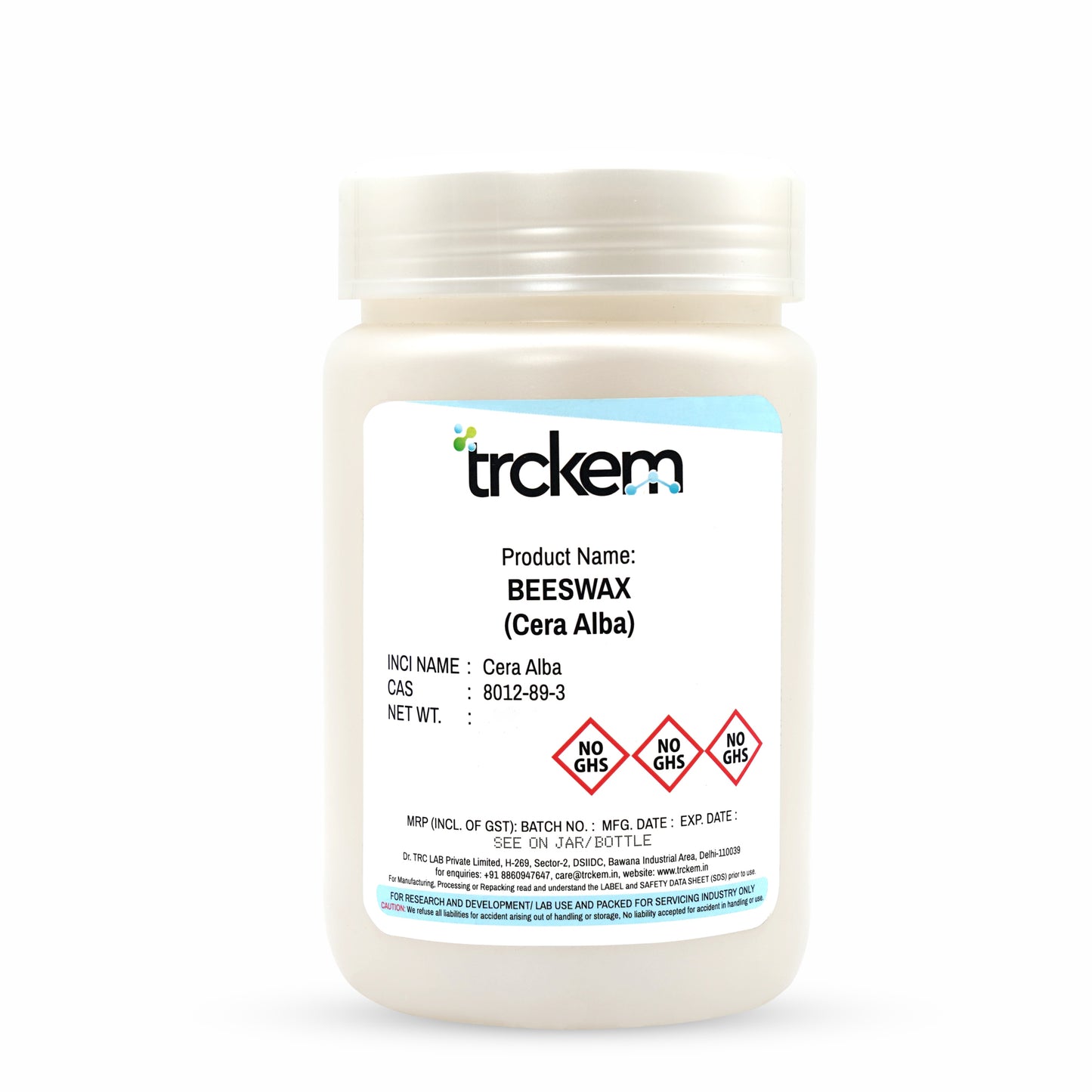
THE STORY OF BEESWAX (CERA ALBA)

Beeswax: Nature’s Original Skin-Protective Wax
Beeswax, also known as Cera Alba, is a natural wax produced by honeybees. Widely used in skincare, haircare, balms, and ointments, it acts as a protective, thickening, and emollient agent. Its natural composition of esters, fatty acids, and long-chain alcohols gives products structure, stability, and a soft, smooth application feel.

Harvested from Honeycombs, Purified for Cosmetic Use
Beeswax is collected from the honeycomb, then purified by melting, filtering, and deodorizing to remove residues and pollen. TRCkem supplies both yellow beeswax (natural filtered wax) and white beeswax (fully bleached & deodorized) — each refined to meet pharmacopeia and cosmetic compliance standards.

Seal. Soften. Stabilize.
Beeswax delivers multiple functional benefits in formulations:
✅ Forms a breathable barrier that protects skin from moisture loss
✅ Thickens and stabilizes emulsions, balms & ointments
✅ Provides natural glossy payoff in color cosmetics & lip products
✅ Non-comedogenic, mild, and suitable for sensitive skin systems
✅ Compatible with oils, butters, esters, and plant waxes
Commonly used in lip balms, cold creams, hair pomades, solid perfumes, salves, sticks, and emulsions.

Versatile, Natural, and Globally Accepted
Typical usage levels:
• 1–5% in creams & lotions
• 5–20% in balms, sticks, and salves
• Up to 100% in anhydrous solid products
Melting point: 61–65°C. Store in cool, dry, odor-free conditions.
Biodegradable, non-toxic, FDA & EU approved for cosmetic, pharmaceutical, and food applications.
Suitable for natural, organic, and clean-label formulations (COSMOS / ECOCERT compatible).
Formulator’s Queries, We Answered
1. What is the CAS number and INCI name of beeswax?
The Chemical Abstracts Service (CAS) number for beeswax is 8012-89-3, and its International Nomenclature of Cosmetic Ingredients (INCI) name is Cera Alba.
2. What is beeswax?
Beeswax is a natural wax secreted by honeybees to construct their honeycombs. It is harvested and purified for use in various applications, including cosmetics and personal care products. Beeswax is composed of a mixture of esters, fatty acids, and hydrocarbons, contributing to its unique properties.
3. What functions does beeswax serve in personal care products?
In cosmetics and personal care formulations, beeswax serves multiple functions:
Emollient: Softens and smoothes the skin.
Emulsifying Agent: Helps in the formation and stabilization of emulsions by allowing water and oil components to blend.
Film Forming: Creates a protective barrier on the skin or hair, aiding in moisture retention.
Thickening Agent: Enhances the texture and consistency of products.
4. In which personal care products is beeswax commonly used?
Beeswax is a versatile ingredient found in a variety of personal care products, including:
Lip Balms and Lipsticks: Provides structure and helps retain moisture.
Lotions and Creams: Acts as a thickening agent and stabilizer.
Hair Care Products: Offers hold and conditioning benefits.
Sunscreen Products: Contributes to water resistance and film formation.
5. Is beeswax suitable for all skin types?
Beeswax is generally considered safe and non-irritating, making it suitable for most skin types, including sensitive skin. However, individuals with allergies to bee products should exercise caution and perform a patch test before using products containing beeswax
6. Is beeswax environmentally sustainable?
Beeswax is a natural and biodegradable substance. Its production supports beekeeping practices, which are essential for pollination and maintaining ecological balance. When sourced responsibly, beeswax can be considered an environmentally friendly ingredient.







